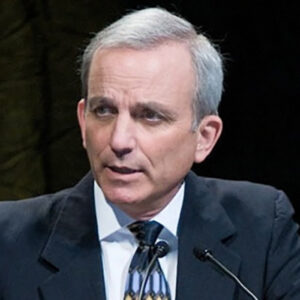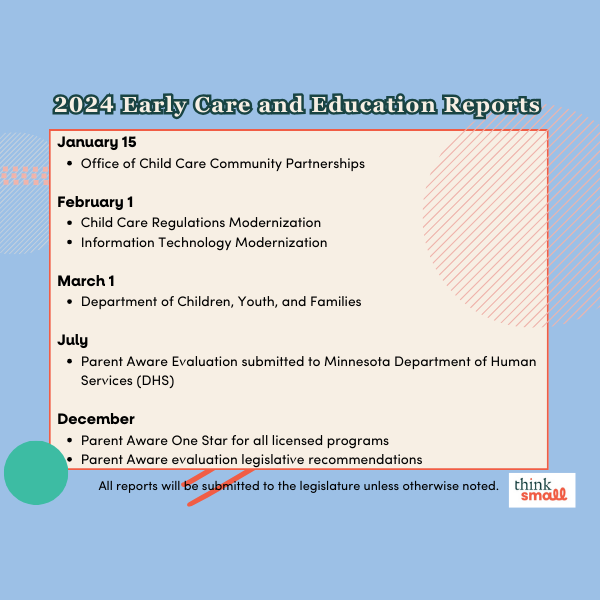
Jim Koppel presented at March Policy Hour.
MN Legislature Updates
Koppel said that legislation for the following policies has been introduced.CCAP PoliciesWith the reauthorization of the federal Child Care and Development Block Grant (CCDBG) in 2014, the federal government passed new regulations for child care. To comply with the new standard in Minnesota, many changes will need to be passed into law. Governor Dayton included these changes in his budget proposal, and legislation has been introduced in both the house and the senate. Proposed changes include:
- Determine eligibility every 12 months, instead of every 6 months.
- Eliminate copayment increases during 12 month redetermination period.
- Require families to certify that assets are less than $1 Million.
- Eliminate schedule verification requirements for most families and allow families to choose a child care schedule that works best for them.
- Simplify and reduce reporting requirements.
CCAP Rates Currently, providers who take care of children receiving CCAP are reimbursed at the 25th percentile of 2011 market rates. Bills introduced this year would update the reimbursement rates to the 2016 market survey. Statewide this would increase rates for providers receiving CCAP by 5.5-12%. The increase would be greater for non-metro providers. Keppel said to look for an updated fiscal note for CCAP changes in the Governor’s supplemental budget.Early Learning ScholarshipsThe governor did not propose increasing funding for Early Learning Scholarships, but he did propose a policy change to make scholarships available for all children under five years old in income-eligible families. Currently, they are available for children three to five and their younger siblings.Legislative Task Force on Access to Affordable Child Care ReportSome components of the Legislative Task Force on Access to Affordable Child Care report have been brought forward as legislation. These efforts could help with regulations and consistency, especially for Licensed Family Child Care.
Challenges
Koppel spoke of several challenges that the child care field faces, many of which are long-term.PayCompensation for many child care providers remains extremely low.RegulationsThe Child Care Task Force Report highlighted some regulation issues. Strict regulations combined with low pay makes it difficult to recruit and retain child care providers. It is challenging to strike the right balance between regulations to protect children and autonomy for providers to run their programs.Unmet NeedTwenty years ago, 75% of providers were reimbursed for their full rate for CCAP. Basic Sliding Fee child care served 23,000 kids. Today, 25% of providers are reimbursed at their full rate, and 15,000 children are served by Basic Sliding Fee. Many children and families could benefit from early learning opportunities, but the state has not made the investments.
Bright Spots
Not all of the news about child care is gloomy. A few hopeful ideas that came up during Policy Hour:EconomyMinnesota has resources and a healthy economy. The February budget forecast projected a state surplus of $1.65 billion for the upcoming biennium.CCAP ChangesCCAP changes proposed this session could really make it easier for families to access the assistance. They will support stability of care for children and work for parents. This would be a step forward.ProjectKoppel talked about a new cross-agency effort to look at the needs of the early childhood community. This project will help multiple departments strategize about what outcomes the state should focus on to support children’s success. It also seeks to look at the full spectrum of programs for children and think about how to better connect and coordinate them. They will be engaging the community in this work.Policy Hour is a monthly opportunity for early childhood and afterschool professionals to connect with each other and learn about current policy issues in an informal setting. It is provided to the field at no cost by the Minnesota’s Future Coalition.







